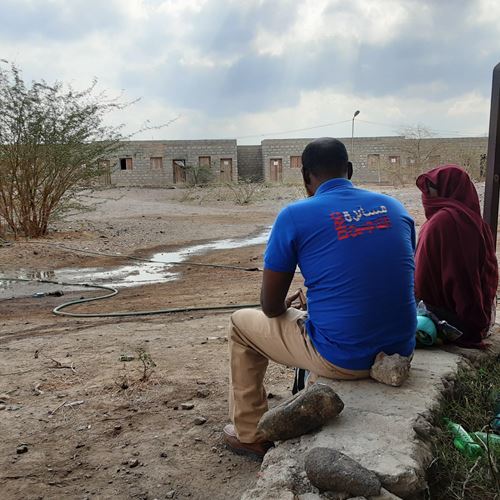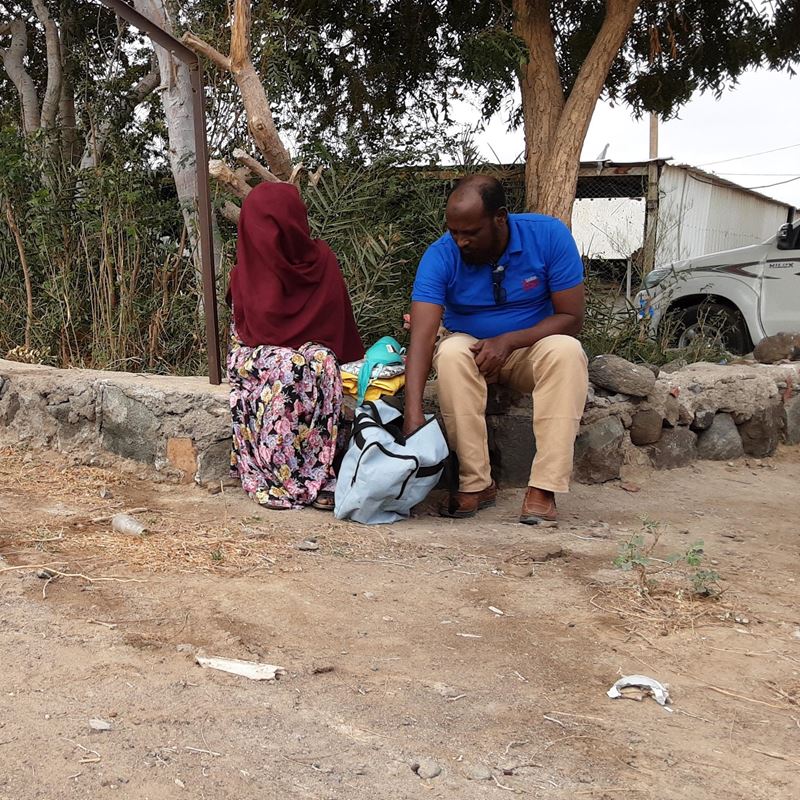Amal*, 19 years old, is from a poor family in Ethiopia. Her father keeps sheep – the family’s only source of income. Amal dreamed of improving life for her family. After hearing from relatives whose lives had improved after they found work in the Kingdom of Saudi Arabia (KSA), Amal decided to travel there. Her family managed to collect four thousand Birr (around 74 US dollars) to be paid to smugglers to facilitate her journey.
Just one dream left: a dangerous journey through Yemen
Lahj, Yemen: The migrant route from the Horn of Africa through Yemen is one of the busiest and arguably most dangerous in the world. Despite the ongoing conflict, tens of thousands of migrants from the Horn of Africa continue to come to Yemen by boat, mainly with hopes of reaching the Kingdom of Saudi Arabia (KSA) and other Gulf states to secure better livelihood opportunities.

My neighbour, cousin and I traveled 40 days ago from Ethiopia to Djibouti via boat. We stayed in Djibouti for four days, each one paid four thousand Birr to the smugglers to deport us to Yemen. We were 70 people in a boat, the majority were women.
/ Amal
Migrants face multiple threats to life and human rights violations as they travel through Yemen, including targeted attacks, trafficking, arbitrary arrest, and detention. Women and girls are particularly vulnerable, with high reported levels of gender-based violence.
Amal did not know about the obstacles that were waiting for her. She was kidnapped with a group of migrants on the coast in Lahj, southern Yemen. After the male migrants were detained in separate places from women, Amal lost her cousin and was alone.
After the kidnap, Amal was taken to a mountainous area in Lahj. Here she was held, verbally abused, and blackmailed while a ransom was demanded from her family. After a month of being kidnapped, Amal began to break down and cry continuously, begging to be let go. Finally, she was released, along with two other female migrants. Amal had nothing but the clothes she was wearing:
"When I left my village, I had a small bag in which I put some clothes in it, but when I arrived in Djibouti and before we boarded the boat, the smugglers threw all our belongings into the sea so that it would not burden the boat."
Alone, and with nothing in a foreign country, Amal and the two other migrants didn’t know where to go or anyone who could help them. They started walking, and when night fell, they entered one of the villages to sleep until early morning to resume the journey. But after her traumatic experience, Amal could not stay long.

IOM’s Displacement Tracking Matrix (DTM) recorded 73,233 migrant arrivals in Yemen in 2022. DRC protection teams are working to provide assistance to migrants on the move, some of the most vulnerable people in Yemen.
"I wasn't comfortable to see people in the village, their voices remained me of the kidnapers, I felt panic, and I couldn't sleep, I ran out of the village alone. I did not know where I was going, and all I wanted was to get away from this area.” said Amal.
DRC’s protection team found Amal on the road at 9am, signs of fatigue and hunger appearing on her pale face, her clothes were torn, and she did not have any bag with her. Amal says, " When I was kidnapped, we were eating only one meal per day, which was rice not well cooked," she adds
DRC team provided Amal with a dignity kit that included clothes and hygiene items, dry food with water, two meal vouchers and first aid. DRC team also provided Amal with free phone calls, so she was able to contact her family in Ethiopia to let them know she was safe. DRC is able to provide emergency, lifesaving assistance, but more support is urgently needed to assist vulnerable migrants like Amal across Yemen.
For Amal, after suffering through the trauma of kidnap and the hardship and danger of travelling through a conflict zone alone and without support, she has just one dream left.
“I just wish I could return to my home; I don’t want anything else.”
/ Amal